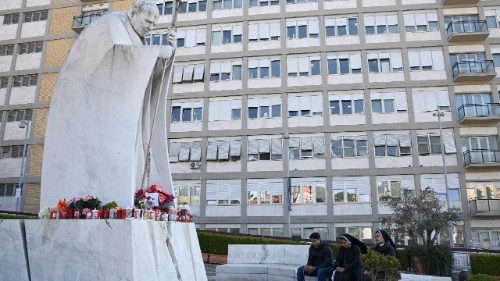Saint Francis Borgia, October 3
3rd General of the Society of Jesus, 4th Duke of Gandía, 1st Marquis of Lombay, Grandee of Spain and Viceroy of Catalonia

Francisco Borgia (1510-1572) renounced his immense wealth, power, and the privileges of a Spanish nobleman to join the Society of Jesus, where his experience elevated him to authority until he became the third general of the young Society.
Borgia, the eldest son of the third Duke of Gandía, was born in the family palace in Valencia. His great-grandfather on his father’s side was Pope Alexander VI. His mother’s grandfather was King Ferdinand the Catholic. Like other young noblemen, he had been prepared for court life, and in 1522 he had been named page to his cousin Catherine, sister of Emperor Charles V, who invited him back to court after completing three years of philosophy studies. In 1529, he married the Portuguese Leonor de Castro, first lady-in-waiting to the Empress Isabel. At the age of 20, Borja received the honour of being named Marquis of Lombay by the Emperor and placed at the head of the imperial household. In the 10 years that followed, Francis and Leonor had eight children and lived very close to Charles and Isabel, until the Empress died unexpectedly on 1 May 1539.
Her death was decisive for Borja’s conversion when he accompanied the funeral procession to the place of her burial in the royal chapel of Granada. When they opened the coffin, he did not see the beautiful face of the young 36-year-old queen, but an unrecognizable face. No longer wishing to serve any lord who might die, he began to devote himself to prayer and penance.
On his return from Granada, he was appointed Viceroy of Catalonia in June 1539 and became the fourth Duke of Gandía when his father died four years later. He returned to the family palace to administer his estates, but on the death of his wife Eleanor on 27 March 1546 he decided to dedicate the rest of his life to the service of God. He was familiar with the Jesuits, having founded a Jesuit college in Gandía and being a personal friend of Pedro Fabro, whom he asked to inform Ignatius of his decision. Ignatius welcomed him into the Society but advised him not to say anything to anyone until he had sorted things out with his sons and finished studying theology. In the meantime, the founder of the Society advised the duke to continue living as an aristocrat. Francis took his Jesuit vows on February 1, 1548, and on August 20, 1550, he received his doctorate in theology from the university he had founded.
Taking advantage of the fact that 1550 was a Holy Year, Francis organized a pilgrimage to Rome to meet Ignatius and make plans for his public entry into the Society. He left his home in Gandía, never to see it again. He stayed at the Jesuit residence in Rome with Ignatius, rather than accept Pope Julius III’s offer to stay in the “Borgia apartments” in the Vatican. After living as a Jesuit from late October to early February 1551, he returned to Spain, where he renounced his title in favor of his son Charles. As soon as he received the emperor’s letter accepting his resignation, Francis donned the Jesuit cassock. He was ordained a priest on 23 May and celebrated his first Mass in the chapel of the Loyola manor house.
For some years, Borja worked as a simple parish priest. In 1554, he was appointed General Commissioner for Spain, with power over the provinces of Spain and Portugal. He founded the first novitiate in Spain at Simancas, and erected more than 20 colleges. He did not attend the first general congregation, convened almost two years after the death of Ignatius, but returned to Rome in 1561 at the request of Pope Pius IV. Likewise, he was elected vicar general when Diego Laínez, Ignatius’ successor as general, had to attend the last session of the Council of Trent. Upon Laínez’s return, Borja was appointed assistant for Spain and Portugal, and eventually chosen to succeed Laínez when he died in 1565.
Borgia was general of the Society for seven years and devoted himself to revising the rules of the Society, to extending the missions of India and the two Americas and to looking after the growth of the young religious order. His last mission was to accompany Cardinal Michele Bonelli to Spain, who was making a last effort to secure Spanish aid against the Turks. The two ecclesiastics left Rome in June 1571 and arrived in Barcelona towards the end of August. Borgia was overwhelmed by the reception he received from the people, who had known him as a nobleman and celebrated his choice of religious life. Borgia left Spain in December to continue his diplomatic mission in France, but fell ill with fever and pleurisy due to the unusually cold weather. He had to stay for weeks in Turin on his way to Rome, and then stayed with relatives in Ferrara for the summer. He finally set out for Rome on 3 September 1572, taking to bed on arrival. The Fr. General’s final illness lasted three days, and he died at the age of 61 on the evening of September 30.
Originally compiled and edited by: Tom Rochford, SJ
Related

Pope Francis spent a peaceful night
Exaudi Staff
02 March, 2025
1 min

Pope Francis has had a peaceful night
Exaudi Staff
25 February, 2025
1 min

What should the boyfriend or girlfriend I should find be like?
Patricia Jiménez Ramírez
24 February, 2025
4 min

The Pope spent a quiet night at Gemelli
Exaudi Staff
23 February, 2025
1 min
 (EN)
(EN)
 (ES)
(ES)
 (IT)
(IT)

